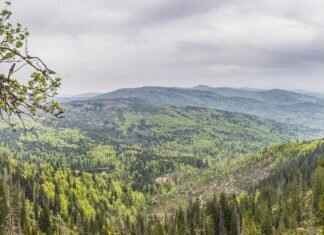Indonesian cuisine is a vibrant tapestry of flavors, textures, and aromas, reflecting the rich cultural heritage of the archipelago. This article delves into three iconic dishes: Satay, Nasi Goreng, and Rendang, showcasing their unique characteristics and cultural significance.
Satay is a popular Indonesian dish that consists of skewered and grilled meat, typically served with a rich and creamy peanut sauce. The origins of satay trace back to Java, and its popularity has spread across Indonesia and beyond. One reason for its widespread appeal is its versatility; it can be made with various types of meat, including chicken, beef, and lamb, catering to different tastes and preferences.
Nasi Goreng, or fried rice, is a staple in Indonesian households and is often considered the national dish. To prepare authentic Nasi Goreng, one must use day-old rice for the best texture. Traditional ingredients include soy sauce, a mix of vegetables such as carrots and peas, and proteins like chicken or shrimp. The dish is typically flavored with garlic, shallots, and a hint of chili for that signature kick.
- Rice: Preferably day-old for optimal frying.
- Soy Sauce: Adds depth and umami flavor.
- Vegetables: Carrots, peas, and green onions for freshness.
- Proteins: Chicken, shrimp, or tofu for added substance.
Vegetarian Nasi Goreng can be just as flavorful as its meaty counterpart. By using tofu or tempeh instead of meat and incorporating a variety of vegetables, one can achieve a delicious and satisfying dish. The addition of kecap manis, a sweet soy sauce, enhances the overall flavor profile.
To elevate your Nasi Goreng, avoid common pitfalls such as using fresh rice, which can become mushy. Ensure proper seasoning and balance of ingredients to achieve that perfect harmony of flavors.
Nasi Goreng is often complemented by various side dishes. Traditionally, it is served with fried eggs, kerupuk (crackers), and a side of cucumber and tomato salad to enhance the meal.
Rendang is often hailed as one of Indonesia’s finest dishes. This slow-cooked meat dish, typically made with beef, is simmered in a rich coconut milk sauce infused with aromatic spices. The result is a tender, flavorful dish that captures the essence of Indonesian culinary traditions.
Rendang has deep roots in Minangkabau culture and is traditionally served at special occasions such as weddings and celebrations. Its historical significance is tied to the cultural practices of the Minangkabau people, who have perfected this dish over generations.
Mastering the art of cooking Rendang requires patience and skill. The key is to slow-cook the meat until it is tender and infused with spices. This process can take several hours, but the result is a dish that is well worth the time and effort.
The right beverage can enhance the flavors of Indonesian cuisine. Popular drink pairings include Teh Botol (sweetened jasmine tea) and Es Cendol, a refreshing dessert drink made with coconut milk, green rice flour jelly, and palm sugar.
Finding authentic Indonesian restaurants can be a delightful adventure. Whether you are in Indonesia or abroad, exploring local eateries that specialize in these iconic dishes can offer a true taste of Indonesian culture.
Indonesian cuisine reflects the country’s rich cultural diversity. Each region boasts its own unique flavors and cooking methods, influencing the preparation and presentation of dishes like Satay, Nasi Goreng, and Rendang. This culinary variety showcases the vibrant tapestry of Indonesia’s culinary heritage.

What is Satay and Why is it Popular?
Satay is an iconic dish that holds a special place in Indonesian cuisine, celebrated not only for its delicious flavor but also for its cultural significance. This dish typically consists of skewered and grilled meat, which can range from chicken and beef to lamb and even tofu for vegetarian options. What truly sets satay apart is the accompanying peanut sauce, a rich and creamy blend that enhances the overall taste experience.
The origins of satay can be traced back to the streets of Indonesia, where it is often sold by street vendors and enjoyed by locals and tourists alike. Its popularity can be attributed to its versatility, as it can be served as a main course, appetizer, or even a snack. Additionally, satay is often accompanied by a variety of side dishes, such as rice cakes, pickled vegetables, and cucumber slices, making it a complete meal that caters to different tastes.
One of the reasons why satay is so beloved is its simplicity in preparation. While traditional recipes may vary from region to region, the basic process involves marinating the meat in a mixture of spices and then grilling it over an open flame. This method not only imparts a smoky flavor but also helps to retain the meat’s natural juices, resulting in a tender and flavorful dish. The marination process often includes ingredients such as turmeric, coriander, and garlic, contributing to the dish’s aromatic profile.
Moreover, satay is a dish that brings people together. It is often enjoyed during festive occasions and gatherings, where friends and family come together to savor the delicious flavors. This communal aspect of dining enhances the overall experience, making satay not just a meal, but a celebration of culture and togetherness.
In addition to its traditional roots, satay has also evolved over time, adapting to modern culinary trends. Many restaurants now offer innovative variations, such as spicy satay or satay made with unique ingredients like seafood or exotic meats. This evolution has helped to keep the dish relevant in contemporary cuisine, attracting new generations of food lovers.
For those interested in trying their hand at making satay at home, the process is relatively straightforward. Key ingredients include skewers, a selection of meat or tofu, and a flavorful marinade. Once the skewers are prepared, they can be grilled to perfection, and the peanut sauce can be whipped up using ingredients like peanut butter, soy sauce, and chili paste. This homemade version allows for customization, enabling cooks to adjust the flavors to their liking.
In conclusion, satay is more than just a dish; it is a representation of Indonesia’s rich culinary heritage. Its delicious flavor, versatility, and cultural significance contribute to its status as a beloved favorite. Whether enjoyed at a bustling street market or prepared at home, satay continues to capture the hearts and palates of many, making it a must-try for anyone exploring the vibrant world of Indonesian cuisine.
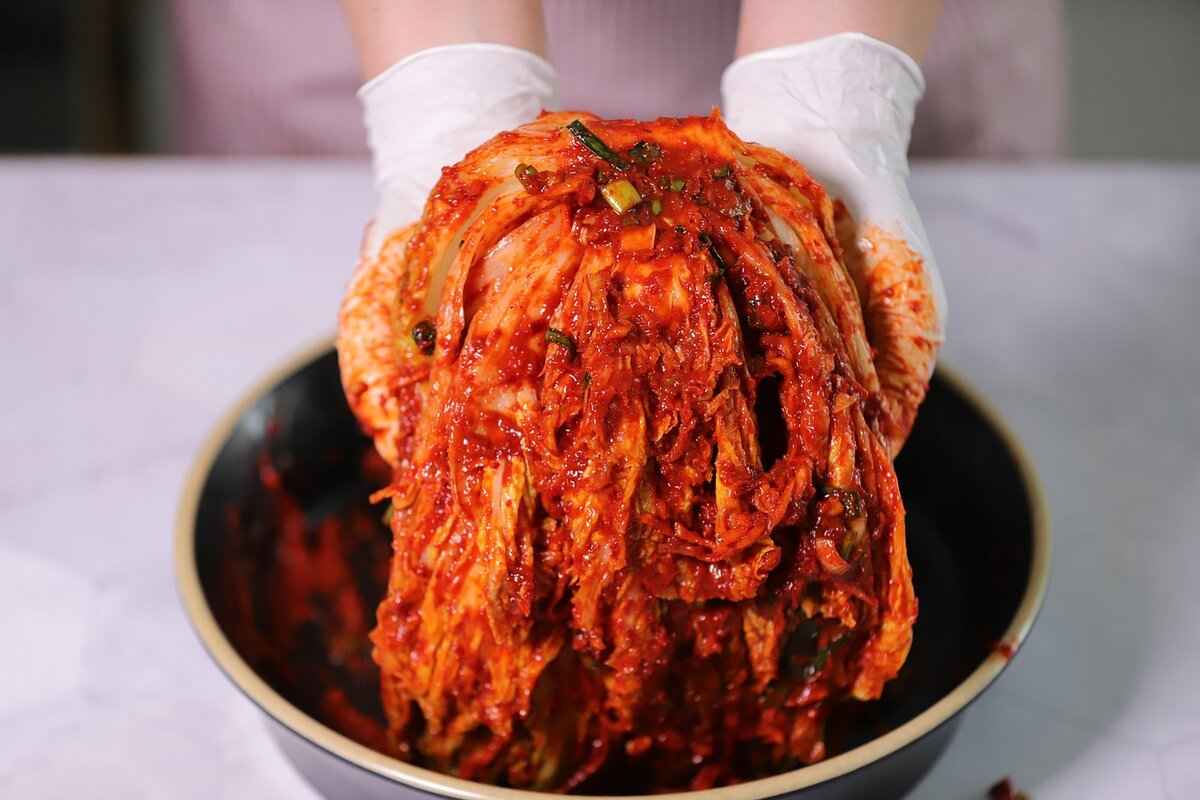
How to Prepare Authentic Nasi Goreng?
Nasi Goreng, often referred to as Indonesian fried rice, is not just a meal; it is a cultural icon that resonates deeply with both locals and visitors. This dish embodies the essence of Indonesian cuisine, combining simple ingredients with bold flavors to create a satisfying and versatile meal. In this section, we will delve into the traditional ingredients, cooking methods, and some tips to help you prepare an authentic Nasi Goreng that captures the heart of Indonesia.
To create a truly authentic Nasi Goreng, it is essential to understand the key ingredients that define this dish. Here are some of the most important components:
- Cooked Rice: Day-old rice is preferred as it is drier and prevents clumping during frying.
- Soy Sauce: Both sweet soy sauce (kecap manis) and regular soy sauce add depth and flavor.
- Shallots and Garlic: These aromatic ingredients provide a fragrant base for the dish.
- Chili Peppers: Fresh or dried, they add heat and complexity to the flavor profile.
- Vegetables: Common additions include carrots, peas, and green onions for color and nutrition.
- Proteins: Chicken, shrimp, or tofu can be added for a heartier meal.
Mastering the cooking technique is just as crucial as selecting the right ingredients. Here’s how to prepare Nasi Goreng authentically:
1. Heat oil in a wok or large frying pan over medium-high heat.2. Sauté chopped shallots and garlic until fragrant.3. Add your chosen protein and cook until done.4. Incorporate vegetables and stir-fry for a few minutes.5. Add the cooked rice, breaking up any clumps.6. Pour in soy sauces and stir well to combine all ingredients.7. Cook for an additional 2-3 minutes until heated through.8. Serve hot, garnished with fried eggs and additional chili if desired.
Yes! Vegetarian Nasi Goreng can be just as delicious as the traditional version. Simply replace meat with an array of vegetables like bell peppers, zucchini, and mushrooms. Additionally, tempeh or tofu can serve as excellent protein substitutes, providing texture and flavor without compromising the dish’s authenticity.
To achieve the perfect Nasi Goreng, here are some common pitfalls to avoid:
- Using freshly cooked rice: Always use day-old rice for the best texture.
- Overcrowding the pan: Fry in batches if necessary to ensure even cooking.
- Skipping the seasoning: Adjust soy sauce and spices to suit your taste.
Nasi Goreng is often served with a variety of accompaniments that enhance its flavor. Consider pairing it with:
- Fried Eggs: A sunny-side-up egg on top adds richness.
- Kerupuk: These crispy crackers provide a delightful crunch.
- Pickled Vegetables: A tangy side can balance the dish’s richness.
In conclusion, Nasi Goreng is more than just fried rice; it is a dish that tells the story of Indonesian culture and culinary tradition. By understanding its ingredients, cooking techniques, and variations, you can create an authentic version that delights the senses and brings a taste of Indonesia to your table.
Key Ingredients for Nasi Goreng
Nasi Goreng, or Indonesian fried rice, is a beloved dish that embodies the essence of Indonesian cuisine. To truly appreciate this dish, it is essential to understand its key ingredients, which contribute to its distinctive flavor and texture. This article will explore the vital components that make Nasi Goreng a culinary delight.
The foundation of Nasi Goreng lies in its rice. Traditionally, day-old rice is preferred, as it is drier and less sticky, allowing for better frying. Freshly cooked rice can become mushy, compromising the dish’s texture. The rice is typically stir-fried with a variety of ingredients to create a harmonious blend of flavors.
Soy sauce is a crucial component that adds depth and umami to Nasi Goreng. Both sweet soy sauce (kecap manis) and regular soy sauce are used to enhance the dish’s flavor profile. The sweetness of kecap manis balances the savory elements, making every bite a delightful experience.
A variety of vegetables are commonly included in Nasi Goreng, adding color, texture, and nutrition. Common choices include:
- Carrots: Diced or julienned for a slight crunch.
- Green peas: For a pop of sweetness and color.
- Shallots: Finely chopped for a subtle onion flavor.
- Garlic: Minced to provide aromatic depth.
These vegetables not only enhance the dish’s flavor but also contribute to its visual appeal.
While Nasi Goreng can be made vegetarian, the addition of proteins elevates the dish further. Popular options include:
- Chicken: Often diced and stir-fried for a hearty addition.
- Shrimp: Adds a seafood twist and a unique flavor.
- Tofu: A great vegetarian protein that absorbs flavors well.
- Egg: Scrambled and mixed in for richness and texture.
These proteins not only provide sustenance but also enhance the overall taste and satisfaction of the dish.
The flavor of Nasi Goreng is further enhanced by a blend of spices and seasonings. Commonly used spices include:
- Chili: For those who enjoy a bit of heat, adding chili paste or fresh chilies can spice things up.
- Ginger: Adds a warm, aromatic quality.
- Black pepper: For a subtle kick.
These spices contribute to the dish’s complexity, making it a favorite among many.
Nasi Goreng is often served with a variety of accompaniments that enhance the overall meal experience. Common side dishes include:
- Fried eggs: Served sunny-side up on top of the rice.
- Kerupuk: Indonesian crackers that add a crunchy texture.
- Pickled vegetables: For a refreshing contrast to the rich flavors.
These accompaniments not only complement the Nasi Goreng but also create a balanced and satisfying meal.
In conclusion, understanding the essential ingredients of Nasi Goreng is vital for creating an authentic version of this iconic dish. From the choice of rice to the selection of proteins and vegetables, each component plays a significant role in crafting a delicious and memorable meal.
Vegetarian Options for Nasi Goreng
Vegetarian Nasi Goreng can be just as flavorful and satisfying as its traditional meat-based version. By incorporating a variety of plant-based ingredients, you can create a dish that bursts with flavor and offers a delightful culinary experience. This section explores how to achieve the same depth of flavor without meat, ensuring that every bite is packed with taste.
To start, it’s essential to understand the key ingredients that make Nasi Goreng special. The foundation of this dish is, of course, rice, preferably day-old rice, which helps achieve the perfect texture. For a vegetarian version, consider using:
- Vegetables: Carrots, peas, bell peppers, and green onions add color, crunch, and nutrients.
- Tofu: Firm tofu is an excellent protein substitute. When marinated and stir-fried, it absorbs flavors beautifully.
- Mushrooms: Varieties like shiitake or oyster mushrooms contribute a rich umami flavor that mimics the depth of meat.
- Eggs: For lacto-vegetarians, scrambled eggs can be added for creaminess and extra protein.
Next, the seasoning is crucial in achieving that authentic taste. Traditional Nasi Goreng relies on:
- Kecap Manis: This sweet soy sauce adds a unique sweetness and depth. If unavailable, a mix of soy sauce and brown sugar can be a good substitute.
- Chili Paste: For those who enjoy heat, adding sambal oelek or a homemade chili paste can elevate the dish.
- Garlic and Shallots: These aromatics provide a fragrant base that enhances the overall flavor.
To prepare vegetarian Nasi Goreng, follow these steps:
1. Heat oil in a wok or large skillet over medium-high heat.2. Sauté minced garlic and shallots until fragrant.3. Add diced vegetables and tofu, stir-frying until cooked.4. Add the day-old rice, breaking up any clumps.5. Pour in kecap manis and chili paste, mixing thoroughly.6. If using, add scrambled eggs and toss everything together.7. Garnish with green onions and serve hot.
Another way to enhance the flavor profile is by adding spices. A pinch of ground coriander or cumin can introduce a warm, earthy tone, while a dash of lime juice at the end brightens the dish. Additionally, topping the Nasi Goreng with fresh herbs like cilantro or basil can offer a refreshing contrast.
Finally, consider the presentation. Serve your vegetarian Nasi Goreng with a side of pickled vegetables or a simple cucumber salad to balance the richness of the fried rice. This not only enhances the visual appeal but also adds a refreshing crunch that complements the dish.
In conclusion, vegetarian Nasi Goreng is a versatile and delicious alternative to the traditional recipe. By utilizing a variety of vegetables, proteins, and flavorful seasonings, you can create a dish that is not only satisfying but also rich in taste. Whether you’re a vegetarian or simply looking to explore plant-based options, this dish proves that you don’t need meat to enjoy a hearty meal.
Common Mistakes When Making Nasi Goreng
Nasi Goreng, a beloved Indonesian fried rice dish, is cherished for its rich flavors and satisfying textures. However, many home cooks often encounter challenges that prevent them from achieving the perfect plate. By avoiding common mistakes, you can elevate your Nasi Goreng to new heights. This section highlights frequent pitfalls and offers practical tips to help you achieve a harmonious balance of flavors and textures.
- Using Stale Rice: One of the most frequent mistakes is using freshly cooked rice. Ideally, you should use day-old rice that has been refrigerated. This allows the grains to firm up, preventing them from becoming mushy when stir-fried.
- Overcrowding the Pan: When cooking Nasi Goreng, it’s essential to avoid overcrowding the pan. This can lead to steaming instead of frying, resulting in a less flavorful dish. Cook in batches if necessary to ensure even cooking.
- Ignoring Flavor Balance: Achieving the right balance of flavors is crucial. Many cooks forget to taste and adjust seasoning as they go. Incorporate soy sauce, sambal, and other seasonings gradually, tasting along the way to avoid overpowering the dish.
- Neglecting Aromatics: Aromatics like garlic and shallots are key to a flavorful Nasi Goreng. Sauté these ingredients first to release their essential oils and enhance the overall taste of the dish.
- Skipping Vegetables: While Nasi Goreng can be a simple dish, incorporating a variety of vegetables adds both flavor and nutrition. Common choices include carrots, peas, and bell peppers. Make sure to chop them finely for even cooking.
- Not Using Enough Oil: Many people try to skimp on oil to make the dish healthier, but a well-fried Nasi Goreng requires a good amount of oil to achieve that signature texture and flavor. Use a neutral oil with a high smoke point, such as vegetable or peanut oil.
- Forgetting the Egg: A traditional Nasi Goreng often includes a fried egg on top. This not only adds richness but also enhances the dish’s presentation. Don’t skip this step; it completes the meal beautifully.
By being mindful of these common mistakes, you can transform your Nasi Goreng into a culinary delight. Remember, cooking is as much about technique as it is about ingredients. Embrace the process, and don’t hesitate to experiment with flavors and textures to find your perfect version of this iconic dish.
Serving Suggestions for Nasi Goreng
Nasi Goreng, Indonesia’s beloved fried rice dish, is not just a meal on its own; it is a canvas for a variety of accompaniments that enhance its flavor and texture. This section delves into the traditional side dishes that elevate Nasi Goreng, transforming it into a complete and satisfying meal.
When serving Nasi Goreng, traditional Indonesian side dishes play a crucial role in creating a balanced and flavorful dining experience. Here are some popular accompaniments that perfectly complement this iconic dish:
- Kerupuk (Crackers): These crispy snacks, made from various ingredients like shrimp or rice, add a delightful crunch.
- Ayam Penyet: Fried or grilled chicken that is smashed and served with sambal, offering a spicy kick to the meal.
- Telur Dadar (Omelette): A fluffy omelette can provide a rich and savory addition to the plate.
- Sayur Asem: A sour vegetable soup that balances the richness of Nasi Goreng with its refreshing taste.
- Pickled Vegetables: A mix of pickled carrots and cucumbers adds acidity and brightness to the dish.
The choice of side dishes is essential for several reasons:
- Flavor Balance: Each accompaniment brings unique flavors that complement the savory notes of Nasi Goreng.
- Texture Variety: The combination of crunchy, soft, and juicy elements creates a more enjoyable eating experience.
- Cultural Significance: These dishes reflect Indonesia’s rich culinary heritage, making the meal more authentic.
When plating Nasi Goreng, presentation matters. Here are some tips for serving:
1. Place a generous serving of Nasi Goreng in the center of the plate.2. Arrange the accompaniments around the rice to create an appealing visual contrast.3. Garnish with fresh herbs like cilantro or green onions for an extra pop of color.4. Serve with lime wedges on the side for added zest.
To complete your meal, consider pairing Nasi Goreng with refreshing beverages. Popular choices include:
- Teh Botol: A sweetened jasmine tea that complements the savory flavors.
- Es Jeruk: Freshly squeezed orange juice served cold, providing a citrusy contrast.
- Bintang Beer: A local beer that balances the richness of the dish.
In conclusion, Nasi Goreng is a versatile dish that can be enhanced by a variety of traditional side dishes. By carefully selecting accompaniments, you can create a well-rounded meal that showcases the diverse flavors of Indonesian cuisine.

What Makes Rendang a Culinary Masterpiece?
Rendang is often celebrated as one of Indonesia’s most exquisite dishes, and for good reason. This culinary gem is a testament to the rich cultural heritage of the Minangkabau people, showcasing the intricate balance of flavors that Indonesian cuisine is renowned for. The dish features tender, slow-cooked meat simmered in a luxurious coconut milk sauce, infused with a symphony of spices that create a truly unforgettable dining experience.
The origins of Rendang can be traced back to the Minangkabau culture of West Sumatra. Traditionally, it was prepared during ceremonial occasions and significant family events, symbolizing hospitality and respect for guests. Over time, this dish has transcended its regional roots, becoming a beloved favorite not only in Indonesia but also around the world. The slow-cooking process is key, allowing the flavors to meld beautifully while ensuring the meat becomes exceptionally tender.
At the heart of Rendang lies a carefully curated selection of ingredients. The primary components include:
- Beef or other meats like chicken or lamb
- Coconut milk for richness
- A blend of spices such as lemongrass, galangal, turmeric, and ginger
- Chili peppers for heat
- Shallots and garlic for depth of flavor
This combination of ingredients not only defines the dish but also highlights the vibrant flavors that are characteristic of Indonesian cuisine.
Preparing Rendang is an art that requires patience and attention to detail. The cooking process typically involves:
1. Marinating the meat with spices to enhance flavor.2. Searing the meat to develop a rich color and taste.3. Slowly simmering the meat in coconut milk and spices until tender and the sauce thickens.
This slow-cooking method allows the meat to absorb the aromatic spices fully, resulting in a dish that is both rich and complex. The final product is a deep, flavorful stew that can be enjoyed with rice or traditional Indonesian side dishes.
Rendang is more than just a meal; it embodies the spirit of Indonesian culture. It is often served during festive occasions, family gatherings, and celebrations, making it a staple in both everyday and ceremonial meals. The meticulous preparation and the communal aspect of sharing this dish reflect the values of togetherness and hospitality that are central to Indonesian society.
While traditional Rendang is made with beef, there are numerous variations that cater to different tastes and dietary preferences. Some popular adaptations include:
- Rendang Ayam – made with chicken, offering a lighter alternative.
- Vegetarian Rendang – utilizing jackfruit or tofu as substitutes for meat.
- Rendang Kambing – prepared with goat meat for a unique flavor profile.
These variations showcase the versatility of Rendang, allowing it to appeal to a broader audience while maintaining its core essence.
Rendang is best enjoyed with steamed rice, which helps balance the rich flavors of the dish. It can also be paired with traditional Indonesian accompaniments like kerupuk (crackers) or acar (pickled vegetables) to enhance the meal. Whether served at a family gathering or a festive celebration, Rendang is sure to impress and satisfy any palate.
The Origin of Rendang
Rendang is not just a dish; it is a culinary symbol deeply embedded in the Minangkabau culture of West Sumatra, Indonesia. Traditionally served during significant events such as weddings, religious ceremonies, and other festive occasions, Rendang has a rich history that reflects the values and traditions of the Minangkabau people. This section explores the historical significance of Rendang, tracing its evolution and the cultural narratives surrounding it.
The origins of Rendang can be traced back to the Minangkabau ethnic group, who are known for their matrilineal society and rich agricultural practices. The dish was originally created as a way to preserve meat for long periods, especially during travels or during the harvest season. The slow-cooking process, combined with a variety of spices and coconut milk, allowed the meat to be tender and infused with flavor, while also extending its shelf life.
Historically, Rendang was prepared using buffalo meat, which was readily available in the region. The cooking method involved simmering the meat with a blend of spices such as ginger, turmeric, lemongrass, garlic, and chilies. Over time, as the dish gained popularity, variations emerged, and different types of meat, including beef and chicken, became common. Each family often has its own secret recipe, passed down through generations, which adds to the dish’s allure and uniqueness.
Rendang’s significance extends beyond its culinary appeal; it serves as a representation of Minangkabau identity. The dish is often associated with the concept of “adat,” which refers to the customs and traditions that govern the social and cultural life of the Minangkabau people. Preparing and serving Rendang is seen as a way to honor guests and celebrate important milestones, reinforcing social bonds and community ties.
As Indonesia has become more globally recognized for its cuisine, Rendang has gained international acclaim. In 2011, it was even voted as the “world’s most delicious food” in a poll conducted by CNN, further solidifying its status as a culinary masterpiece. This global recognition has led to an increase in the popularity of Rendang outside of Indonesia, with many restaurants offering their interpretations of the dish.
The evolution of Rendang continues today, as chefs experiment with new ingredients and techniques while still honoring traditional methods. Modern renditions might incorporate fusion elements, such as using different types of meat or vegetarian alternatives, while still aiming to capture the essence of the original dish. This adaptability showcases the resilience of Rendang as a cultural artifact, capable of evolving while retaining its core identity.
In conclusion, Rendang is more than just a meal; it is a celebration of Minangkabau culture, history, and identity. From its humble beginnings as a means of preserving meat to its status as a global culinary icon, Rendang has transformed while remaining a cherished part of Indonesian heritage. Understanding its origins and significance provides a deeper appreciation for this exquisite dish, making it a must-try for anyone exploring Indonesian cuisine.
Cooking Techniques for Perfect Rendang
Cooking Rendang, a traditional Indonesian dish, is an art that combines patience, skill, and a deep understanding of flavors. This dish, known for its rich and aromatic profile, requires meticulous preparation and cooking techniques to achieve the perfect balance of tenderness and spice infusion.
To master Rendang, one must focus on several key techniques:
- Marination: Begin by marinating the meat, typically beef, in a blend of spices, including turmeric, ginger, and lemongrass. This step is crucial as it allows the meat to absorb the flavors deeply.
- Slow Cooking: The hallmark of a great Rendang is its slow cooking process. Cook the marinated meat on low heat for several hours. This method ensures that the meat becomes tender and allows the spices to meld beautifully.
- Using Coconut Milk: Incorporate coconut milk gradually. This not only adds richness but also helps in tenderizing the meat. Ensure to stir occasionally to prevent sticking and burning.
- Reducing the Sauce: As the dish cooks, the coconut milk will reduce, thickening the sauce. This step is vital as it intensifies the flavors. Aim for a dry consistency, which is characteristic of authentic Rendang.
The quality of ingredients plays a significant role in the final outcome of Rendang. Opt for fresh, high-quality spices and herbs. For example, using freshly grated coconut instead of packaged coconut milk can enhance the flavor profile remarkably.
Even experienced cooks can make mistakes when preparing Rendang. Here are some common pitfalls:
- Rushing the Cooking Process: One of the biggest mistakes is not allowing enough time for the meat to cook. Rushing can result in tough meat and a lack of depth in flavor.
- Overseasoning: While spices are essential, overdoing them can overwhelm the dish. Balance is key, so taste as you go.
- Neglecting to Stir: Failing to stir the pot can lead to burning at the bottom. Regular stirring ensures even cooking and prevents the flavors from becoming scorched.
To elevate your Rendang further, consider adding a splash of tamarind juice or a pinch of sugar to balance the flavors. Additionally, garnishing with fresh herbs like cilantro or fried shallots can add a delightful texture and freshness.
In conclusion, mastering the art of cooking Rendang is a rewarding journey that requires careful attention to detail and a passion for Indonesian cuisine. By employing the right techniques and avoiding common mistakes, you can create a dish that is not only delicious but also a true reflection of the rich culinary traditions of Indonesia.
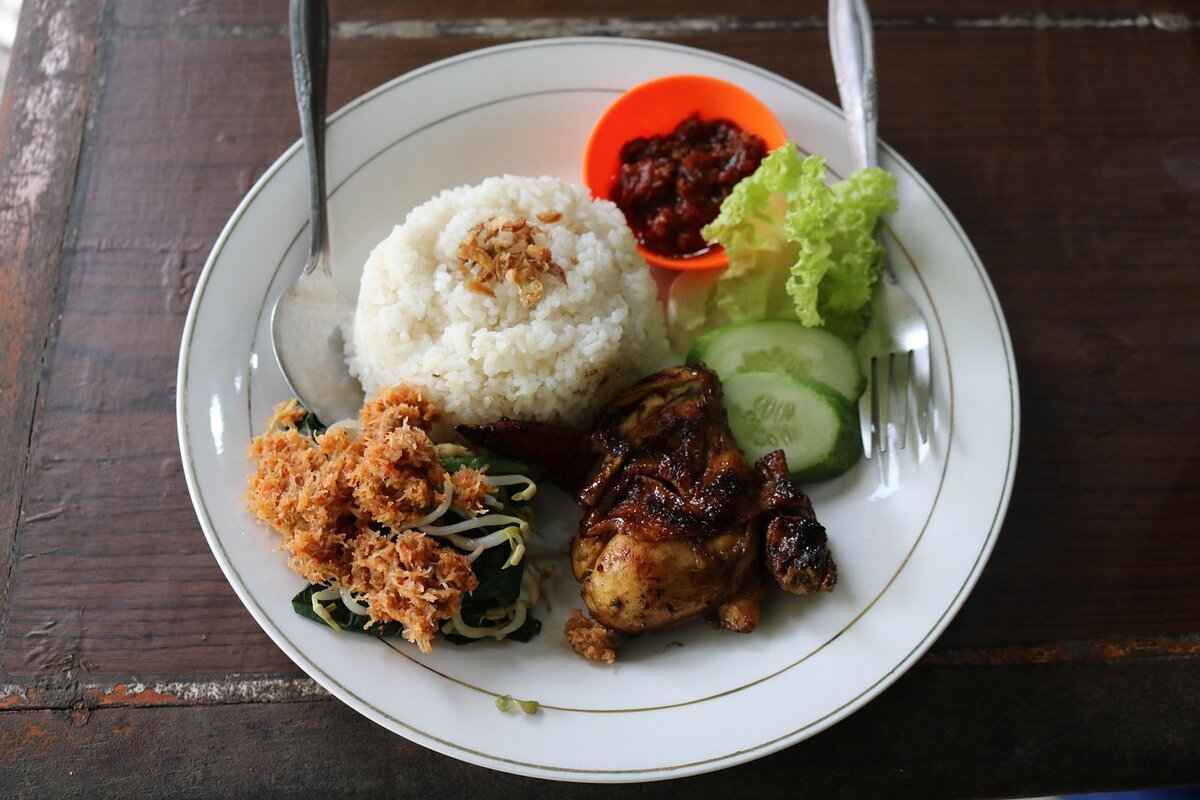
Pairing Drinks with Indonesian Dishes
When it comes to enjoying the rich and diverse flavors of Indonesian cuisine, the right beverage can significantly elevate your dining experience. Each iconic dish, such as Satay, Nasi Goreng, and Rendang, has unique characteristics that can be beautifully complemented by specific drinks. This section explores popular drink pairings that not only enhance the flavors of these dishes but also enrich the overall culinary journey.
Satay, with its savory grilled meat and rich peanut sauce, pairs excellently with sweet and refreshing beverages. One of the most popular choices is Teh Manis, a sweetened iced tea that balances the richness of the peanut sauce. Additionally, fresh coconut water provides a light and hydrating option that complements the smoky flavors of the grilled meat.
Nasi Goreng, the beloved fried rice dish, is often enjoyed with a variety of drinks. A classic pairing is Indonesian-style iced coffee, which adds a robust flavor that contrasts beautifully with the dish’s savory notes. Alternatively, a mango or lychee soda can provide a fruity, effervescent lift, enhancing the overall flavor profile of the meal. For those who prefer something non-sweet, mineral water with a squeeze of lime can cleanse the palate between bites.
Rendang, known for its rich and spicy coconut milk sauce, pairs well with beverages that can cut through its richness. A popular choice is Jamu, a traditional Indonesian herbal drink that offers a refreshing balance of flavors. For those looking for a more robust pairing, red wine can be an excellent option, especially if it has fruity notes that complement the spices in the Rendang. If you prefer non-alcoholic options, iced lemon tea serves as a refreshing counterpoint to the dish’s heat.
Indonesia’s vast cultural diversity influences not only its cuisine but also the beverages that accompany it. In regions like Bali, you might find local craft beers that complement seafood dishes, while in Java, traditional herbal teas may be favored with heartier meals. Understanding these regional nuances can enhance your dining experience and allow you to explore the depth of Indonesian flavors.
For those who prefer non-alcoholic beverages, Indonesia offers a variety of unique options. Es Cendol, a sweet dessert drink made from rice flour and coconut milk, can serve as a delightful accompaniment to spicy dishes. Furthermore, fresh fruit juices, such as guava or passion fruit, not only provide a refreshing taste but also add a vibrant color to your meal.
In conclusion, the right beverage can transform your experience of Indonesian cuisine, enhancing the flavors and making each meal memorable. Whether you choose traditional drinks or modern interpretations, pairing your dishes thoughtfully will ensure a delightful culinary adventure.
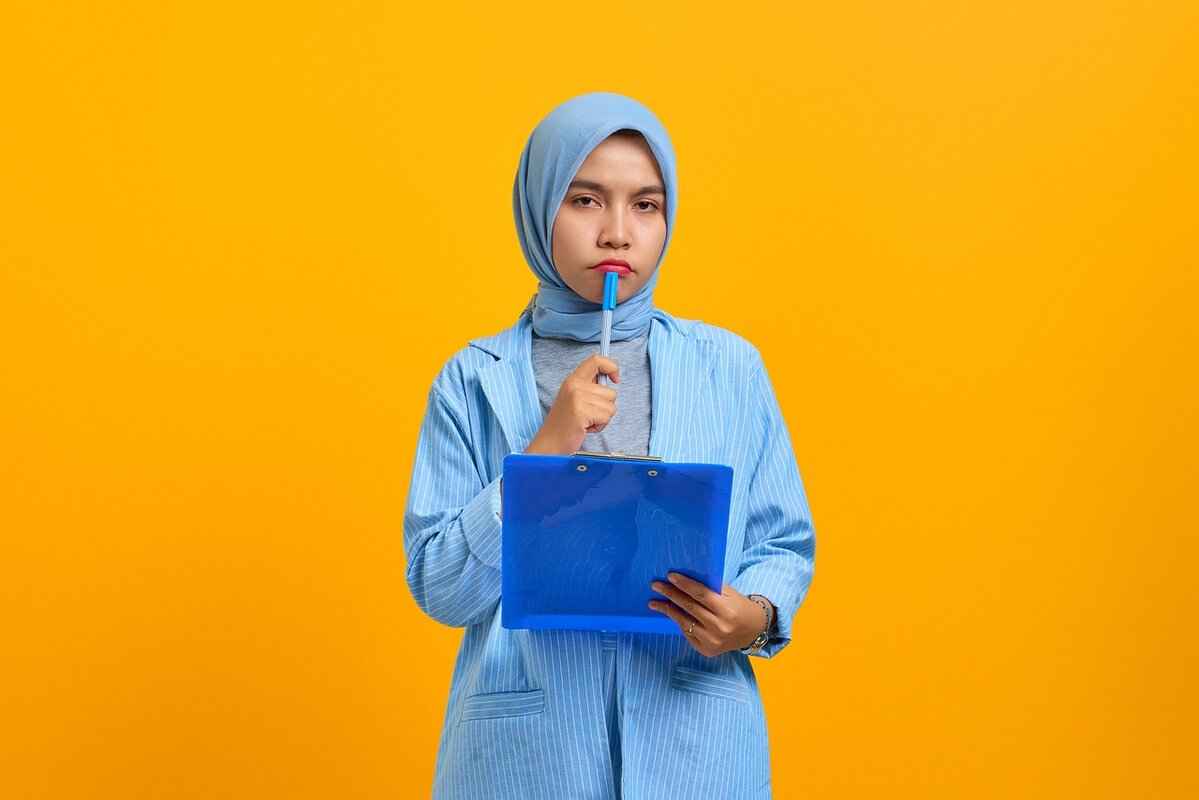
Where to Experience Authentic Indonesian Cuisine?
Exploring the world of Indonesian cuisine can be a thrilling journey, especially when it comes to discovering authentic restaurants that serve traditional dishes. Whether you are in the heart of Indonesia or wandering through a bustling city abroad, finding a place that truly captures the essence of Indonesian flavors can be both exciting and rewarding. This section aims to guide you through some of the best places to savor iconic dishes like Satay, Nasi Goreng, and Rendang.
One of the challenges in finding genuine Indonesian restaurants is the sheer diversity of the cuisine itself. With over 17,000 islands, each region has its own specialties and cooking techniques. Many restaurants outside Indonesia may offer a fusion or simplified version of these dishes, which can lead to a diluted experience. Therefore, it is essential to look for places that prioritize authenticity and traditional preparation methods.
- Jakarta, Indonesia: The capital city boasts numerous restaurants known for their authentic Indonesian fare. Places like Restoran Sederhana serve traditional dishes in a casual setting, making it a favorite among locals.
- Bali, Indonesia: Renowned for its vibrant food scene, Bali offers a mix of local warungs and upscale dining. Warung Babi Guling Ibu Oka is famous for its Babi Guling, while Locavore offers a modern twist on traditional recipes.
- Amsterdam, Netherlands: The city is home to a significant Indonesian community, and restaurants like Indonesisch Restaurant Blauw provide a genuine taste of the archipelago with dishes like Rijsttafel.
- Los Angeles, USA: With its diverse culinary landscape, LA has several Indonesian spots. Rendang is a must-try at Warung Siska, where traditional flavors are celebrated.
When searching for an authentic Indonesian restaurant, consider the following:
- Menu Variety: A good restaurant should offer a wide range of dishes that represent different regions of Indonesia.
- Ingredients: Authentic restaurants often use traditional ingredients, including spices that are essential for creating genuine flavors.
- Cooking Techniques: Look for places that employ traditional cooking methods, such as slow-cooking for Rendang or grilling for Satay.
- Ambiance: An authentic atmosphere, often adorned with Indonesian decor, can enhance your dining experience.
To truly appreciate Indonesian cuisine, consider dining family-style. This approach allows you to sample a variety of dishes, enhancing the communal aspect of Indonesian meals. Pair your meal with traditional drinks like Teh Botol (sweetened tea) or Es Cendol (a refreshing dessert drink) for a complete experience.
Finally, don’t hesitate to ask the staff for recommendations. They can provide insights into the best dishes and how to enjoy them authentically. By following these tips, you can ensure that your quest for authentic Indonesian cuisine is both enjoyable and fulfilling.
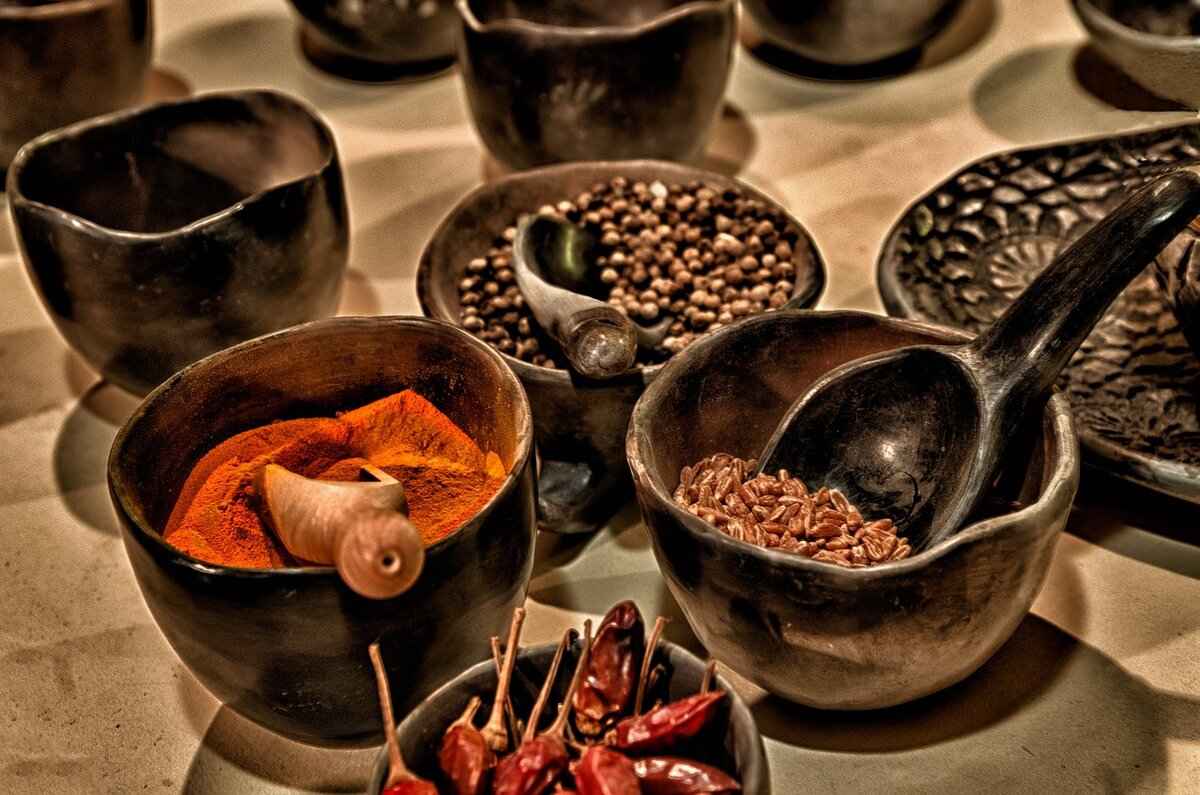
Indonesian Cuisine: A Reflection of Cultural Diversity
Indonesian cuisine is a remarkable representation of the country’s vast cultural diversity, shaped by its numerous ethnic groups, geographical landscapes, and historical influences. Each region of Indonesia boasts its own unique culinary traditions, resulting in a rich tapestry of flavors, ingredients, and cooking techniques that reflect local customs and lifestyles. This article explores how these regional variations influence the preparation and presentation of iconic dishes such as Satay, Nasi Goreng, and Rendang.
Satay, a popular street food, varies significantly across Indonesia. While the classic version features marinated meat skewered and grilled to perfection, regional styles introduce distinct flavors and accompaniments. For instance, in Bali, Satay Lilit incorporates minced meat mixed with grated coconut and spices, while in Java, it is often served with a rich peanut sauce. This diversity not only showcases local ingredients but also reflects cultural practices surrounding food preparation.
Nasi Goreng, or fried rice, is a beloved dish that varies from region to region. In Jakarta, it may be prepared with sweet soy sauce and topped with fried shallots, while in Sumatra, it might include a spicier blend of chili and shrimp paste. The choice of proteins and vegetables also varies, with coastal areas favoring seafood, while inland regions might lean towards chicken or beef. This adaptability allows Nasi Goreng to embody the essence of local tastes and traditions.
Rendang is often considered a culinary masterpiece, originating from the Minangkabau ethnic group in West Sumatra. Traditionally served at ceremonial occasions, its preparation involves slow-cooking beef in a rich coconut milk and spice mixture. Variations exist, with some regions adding different spices or even using chicken or lamb. The cooking method and choice of ingredients reflect the agricultural practices and available resources of each region, making Rendang a true representation of Indonesian culture.
Ingredients are the backbone of Indonesian cuisine, with each region showcasing its local produce. For example, the use of tempeh in Java highlights the region’s rich soybean production, while fresh herbs and spices like lemongrass and galangal are prevalent in many dishes across the archipelago. These ingredients not only enhance the flavor but also signify the cultural identity of the people, making each meal a celebration of their heritage.
The presentation of Indonesian dishes often reflects the cultural significance of food in social gatherings. For instance, during festive occasions, dishes are typically served on large platters, allowing for communal sharing. This practice emphasizes the importance of togetherness and hospitality in Indonesian culture. Additionally, the vibrant colors of the dishes, achieved through the use of fresh vegetables and spices, not only appeal to the palate but also to the eyes, making meals a feast for all senses.
Understanding the regional differences in Indonesian cuisine is essential for appreciating the country’s cultural richness. Each dish tells a story, representing the history, traditions, and values of its people. By exploring these variations, one can gain insight into the diverse lifestyles across Indonesia, making every culinary experience a journey through its rich heritage.
Frequently Asked Questions
- What is the main ingredient in Satay?
Satay primarily features skewered meat, which can be chicken, beef, or lamb, grilled to perfection and often paired with a rich peanut sauce. It’s a crowd-pleaser that tantalizes your taste buds!
- Can I make Nasi Goreng without meat?
Absolutely! Vegetarian Nasi Goreng can be just as scrumptious. You can substitute meat with tofu or tempeh and load it up with colorful veggies to keep it flavorful and satisfying.
- What makes Rendang unique?
Rendang stands out due to its slow-cooking process that melds tender meat with a fragrant blend of spices and coconut milk. This dish is not just food; it’s a rich tapestry of Indonesian culture and tradition!
- What drinks pair well with Indonesian dishes?
To complement the bold flavors of Indonesian cuisine, consider pairing your meal with sweet iced tea, coconut water, or even a light beer. These beverages enhance the experience and balance the spices beautifully!
- Where can I find authentic Indonesian cuisine?
Seek out local Indonesian restaurants or food festivals that celebrate this vibrant cuisine. You might be surprised at how many hidden gems are right in your neighborhood!















